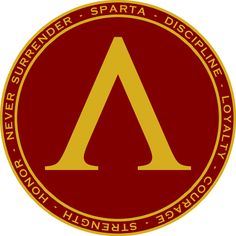Around 800 B.C.E., the Greek people were emerging as an Aegean power because of the growth of their many urban centers: city-states called poleis. These poleis functioned as principle centers for Greek societies. They varied in their political views and cultural practices from one another. One of the most important of the Greek city-states was the polis of Sparta.
Sparta was a part of a region called Laconia, which was located on the fertile peninsula in Greece called the Peloponnese. Although the Spartans were landlocked, they had the ability to use the Gyethio harbor when needed, along with the Evrotas River as a source of fresh water. Spartans had neighbors called helots, who were the descendants of the earlier Greek immigrants to Laconia. The helots were defeated by the Spartans, and were forced to serve as slaves to the Spartan community, and were not recognized as equal members of the Spartan society. Another group of people who were living within the Spartan society were called the Perioeci people. Their name translates to dwellers around, and they worked as traders and craftsman in the community, but were not citizens of the land of Sparta either. The Spartan exploitation of the helots allowed them to live a lifestyle of simplicity, frugality, and austerity. From this lifestyle, the Spartans were able to create an educational system they called the Agoge.1

The Agoge was characterized by the way Spartans raised their children and how they educated them. Their educational system emphasized physical education, warfare, and how to survive as a warrior. This was the toughest test one could face at the time because the Spartan army was well known all throughout Greece as having the most fearless and toughest fighting men in the world. Before a male child went through the hardships of the educational system, the child faced his first test at birth. Once the child was born it would be bathed in wine to determine if the baby would be strong enough to go through the hardships of becoming a Spartan warrior.2 Once the child survived, the elders who ruled Sparta would examine the baby for any birth defects or any blemishes that the baby might have. If the baby did not survive the wine bath or the Elder assessment, the baby was sent down to Mount Taygetos to perish.

If one were born a male, one would be raised mainly by one’s mother until reaching the age of seven. Boys were then sent to military training, or the Agoge. They were forced to learn to survive on their own, create their own meals, and learn to fight in the worst of conditions. During the Agoge, young Spartans would learn to overcome their fears by never showing weakness and trusting only a Spartan. The boys would also dine and be exposed to the lifestyle of a Spartan soldier and learn how to conduct oneself as a Spartan solider in society.3 By the age of twenty, males were encouraged to marry and have children. In order to fulfill this expectation of creating a family, the young soldiers were forced to sneak out of their barracks and return to the city to see the females. The young soldiers had to sneak out because their Agoge camp was away from the city and the trainees had to remain there until their training was completed.
By this age the soldiers were showing promise to their elders. The elders would let them start their membership to the syssitia, or clubs that had to do with dining hall messes and social religious groups within the city. The syssitias were already established through the army. The boys were placed or drafted into these different syssitias. Once placed into their syssitias, the boys would finish their training in these syssistias and learn how their new unit contributed to Spartan society. However, Spartan men were not considered or thought of as citizens until they reached the age of thirty. Once they were thirty, the trainees would become a full time soldier and full-membered citizens. Once this happened, they were allowed to participate in their new syssitia. It was an honor to participate in the mess hall because it shows that one was strong enough to provide for one’s family and for the community. Also, one belonged to a troop and had rank within the society. Even though they were seen as equals within the community, the men were not yet allowed to sleep with their wives overnight. The men were forced to sleep in quarters that housed each different syssitia. Now as an active soldier and equal in society, one served the Spartan army until the age of sixty.4 By the age of sixty, Spartans focused on their family and helped groom other young men that were in the process of becoming Spartan warriors. When serving the Sparta military, they held to the motto to come back victorious or die trying to be.
Although Sparta was a small polis within Greece, it was still able to be a prosperous and feared power in Greece. The Sparta population was about fifty to sixty thousand, which included the helots and Perioeci people. The Spartans only made up about fifteen thousand of that sixty thousand population. They were outnumbered sixteen to one, but were able to maintain order and peace through their strong and feared soldiers. This characteristic was admired by other city-states within Greece, many of whom took that admiration to forms of imitation. These traits that the Spartans would show and live by would eventually be copied or altered by others for a way of living or a way to build a strong army.
- Stephen Hodkinson, Anton Powell, and Jacqueline Christien, Sparta & War (Classical Press of Wales, 2006), 56-62, 102-126. ↵
- Maurice Pope, “Spartan details of daily life,” Times Higher Education Supplement no. 1626 (2004): 35. ↵
- John Buckler, Aegean Greece in the Fourth Century BC (Boston: Brill, 2003), 187-195, 203-210, 228-231. ↵
- Anton Powell, Athens and Sparta: Constructing Greek Political and Social History from 478 BC (Routledge, 2016), 78-93, 147-158, 303-331. ↵



51 comments
Carlos Hinojosa
I think it’s quite interesting how the Spartans trained from the day they were born to their death. It was cruel by our standards but necessary for them, actually I also thought it was interesting that most Greek states took care of their body really well. The spartan training was obviously effective due to the fact that a spartan was probably worth at least ten normal Greeks. Evident by the multiple wars Sparta had with Athens and even with all the support from the other city-states the Athens would still lose or barely win. Very good article.
Samson Pullattu
The Spartan society demanded so much from the young men that it makes me incredibly thankful that I am alive now. In order to survive back then, I would have to join and be expected to excel in extreme cub scouts followed by basic training and become well versed in military tactics, or else I would forfeit my right to live, god forbid I have a birthmark. It is no wonder the Spartans won the Peloponnesian War with an army of soldiers hardened by such a rigorous training.
Amelia Hew
Spartans has always been an interesting subject in Greek history. It’s surprising to know how they were trialed when they were just a baby and they would be killed if they failed the trial. They were later forced to leave home at a mere age of seven and was not given permission to go home even when they were adults. Despite them being honorable and fearless soldier in the battlefield, the price they payed to achieve it was relatively high. It’s like the sole purpose of their existence was to serve their country as a soldier until the last moments of their life.
Analisa Cervantes
I remember learning about ancient Greece in my freshman and sophomore year of high school. I knew the boys were trained from an early age but I did not know about the wine bath. I find it interesting and amusing that they had to sneak around to be with their girlfriends. I also did not know that they were not considered full citizens until the age of thirty.
Cameron Lopez
This was a very interesting article to read about the Spartans, I had no clue that they would run tests on the newborns by putting them in a bath of wine and seeing if they were worthy of becoming a true spartan. Although in Greece the Spartans were out numbered they were still a fighting bunch.
Matthew Swaykus
We often reflect highly upon the Spartans as honorable soldiers holding the line to protect their fellow Greeks; however, the truth is much darker. After reading this article, readers can have a completely different view of the spartan people. The author points out how soldiers had to pass all the trials and tribulations set up for them, no matter how rigorous. I appreciate how the author took us through the life of a spartan warrior, painting a picture of how punishing recruitment is. You either overcome, or you die.
Danielle Slaughter
Spartan society is a fascinating subject of research. Their ways seem rather barbarian to us in the twenty-first century, but in that day and age of Ancient Greece, it was the key to their fearful reputation as fierce and brutal warriors. Take this as opposed to Athens, a city-state of philosophers and the birth of democracy. I do feel sorrow for the baby boys who were murdered before they had a chance at real life, though, but it does command attention, just like all the other aspects of Sparta.
Ruby Wynn
This is a fascinating article. I have always been interested in Greek history. It is unfortunate that the Spartans would kill infants that were considered not strong enough, but I can see why they did it as a culture that requires males to be soldiers. I find it interesting that men sixty years old and older take a role training the young men to be soldiers.
Andrea Cabrera
Spartan boys entered a rigorous state-sponsored education, military training and socialization program. The first time I heard about the term was in the movie 300. Even if they were a small group, their traits were eventually copied others and built stronger armies. This article was very well written and I enjoyed remember this story since I have read about the Spartans in a long time.
Madison Downing
It was really lovely to read your article especially since I just learned about the Spartans not to long ago. I can’t believe that the warriors weren’t allowed to spend that much time with their wives and how the society treated the male children. It seems insane that if the male child didn’t not pass the wine bath or defect stages, then they were sent to idea. I really don’t want to know how many little boys did not make it. You did just an amazing job explaining the aspects of the Spartan life and the process very well and it was easy to keep up with the slightly complex system!